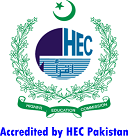Multilingualism in Switzerland: An Overview
DOI:
https://doi.org/10.56384/jes.v38i2.255Keywords:
Multilingualism, Emergence, Evolution, Sustainability, DiversityAbstract
Multilingualism claims centrality in the discourse community. Besides being an important aspect of linguistics, it has been a socio-political phenomenon. Developments in human history, particularly the growing concept of globalization, wars, treaties, invasions, colonialization, and migrations have ensured that most of the states in today’s world are multilingual, multicultural, or sometimes even multinational in character. During the 18th and the 19th centuries, the rising wave of nation-states based on one language, one culture, and one religion, multilingualism was considered and treated as a curse and menace to the socio-political harmony of the state. Nonetheless, there were few states which showed firm faith in unity in diversity. They remained neutral to those developments and kept alive through preserving, protecting, and flourishing the feature of multilingualism in state policies. Switzerland is considered the spearhead and torchbearer in this march. The foundation of modern Switzerland was established in 1848 by the federal constitution declaring the state multilingual. Even before that, it was a multilingual state comprising French, German, Italian, and Romansch. Today, all the four major languages of the country enjoy the prestige of the national language with a qualified promise to provide equal opportunities for other minor languages. In this context, this present paper offers an overview of the emergence, evolution, and sustainability of multilingualism in Switzerland. The main argument is that “quardilingualism” and multilingualism in Switzerland are not merely due to the state policies but mainly because of the people’s will to live in diversity and their mutual respect for individual idiosyncrasies.















